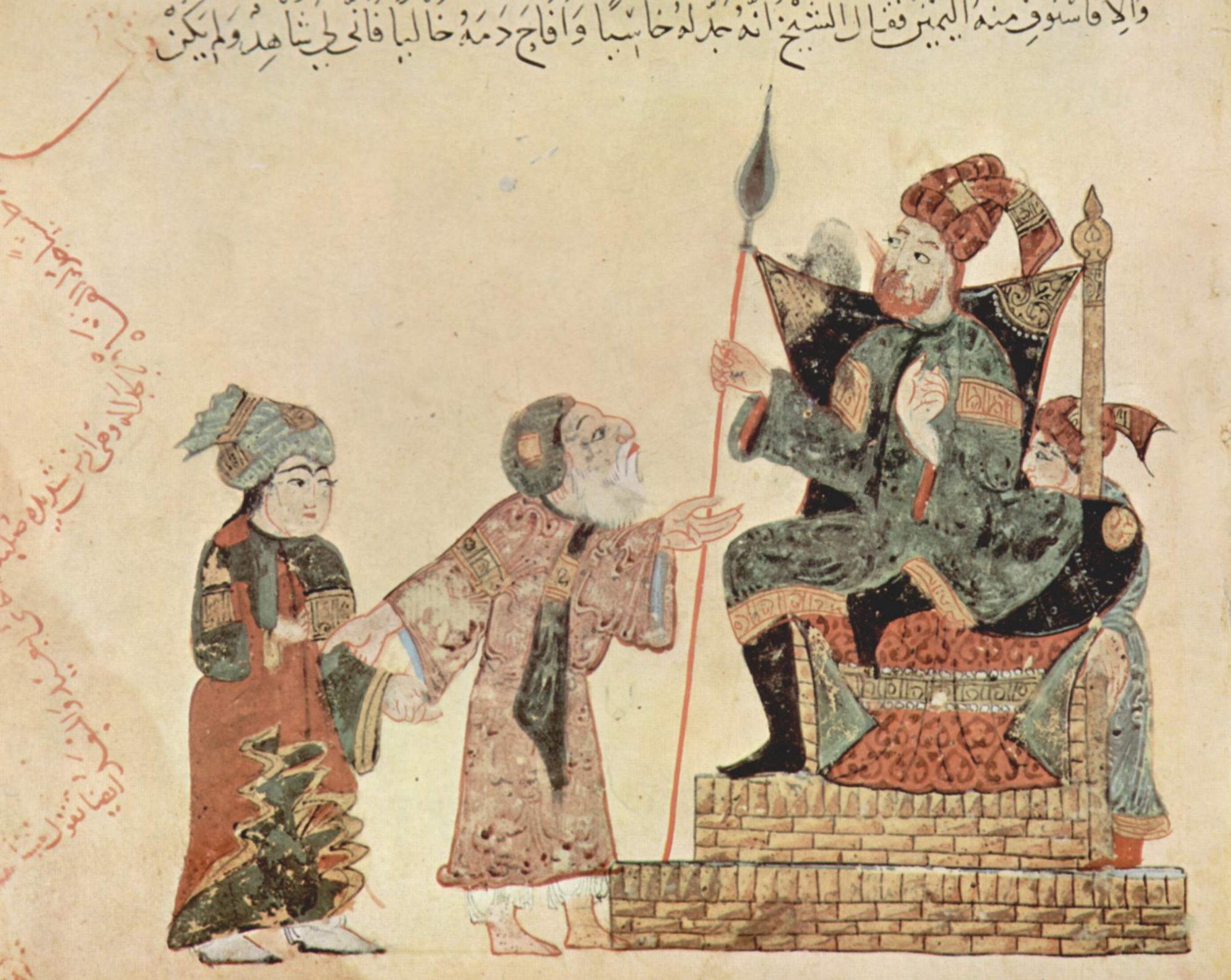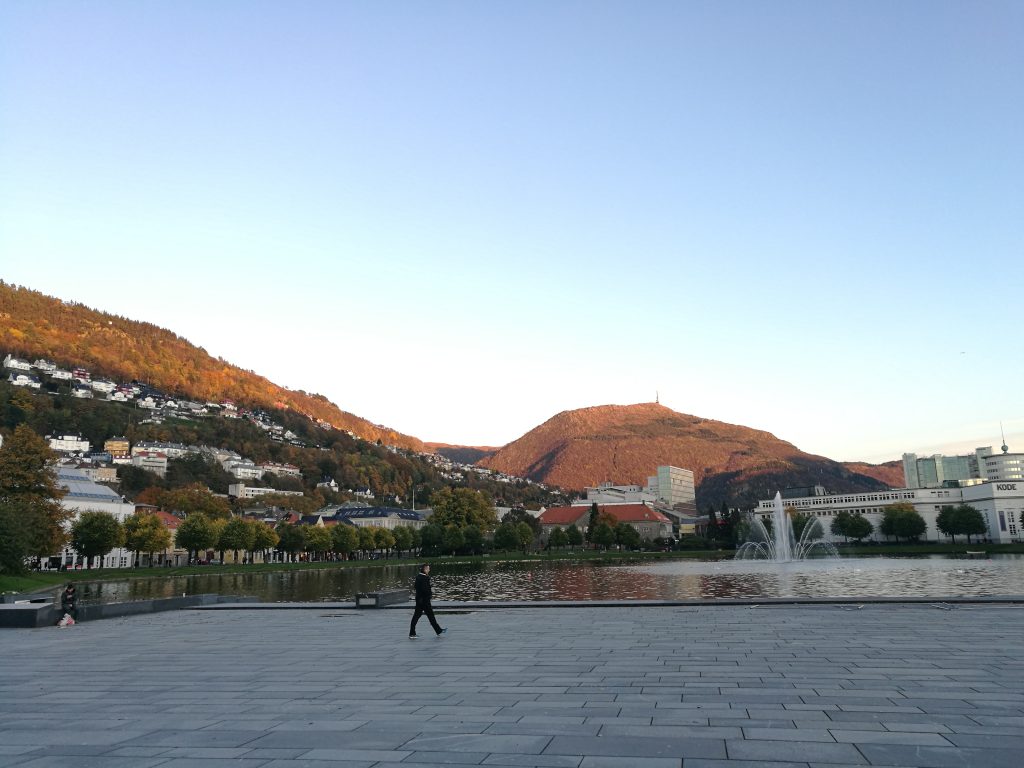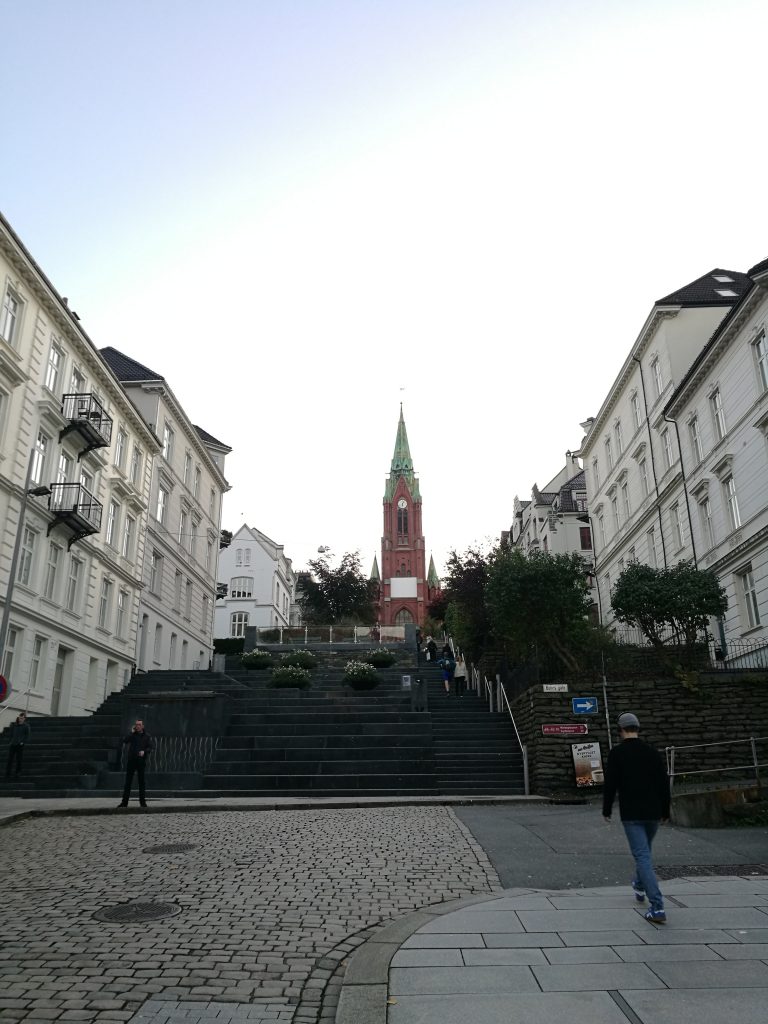A friend advised me to occupy the window seat for the in-bound flight to Bergen, a decision I’m glad to have taken. On our descent, the dark green islets of Norway began to appear, scattered in the cold of the North Sea. Many were inhabited, and as we flew past I traced the outlines of houses, sheds and ramshackle piers. I tried to imagine the apparently rather solitary lives of those island folk; I wondered whether they had to return to the mainland for their necessaries, or if these were available in the larger ones in periodically restocked stores.
Even our afternoon descent could not have prepared me for the beauty of the city, particularly the views out to the bay. I had a few hours to collect impressions before an evening meal with colleagues. Many of the houses were built, or at least clad, in brightly painted planks of wood; many of the central streets were cobbled, especially in the hilly areas towards the ‘fingers’ of Bergen, projecting out to sea. I made a circuit of these and walked between the various bridges linking Bergen’s stony prominences; there were some excellent views along elevated paths laid out with evening walkers in mind. The air was cold and sharp, the sky mostly clear; I was later told that the weather had markedly improved since the previous few days. The city itself was immaculately clean. I immediately decided that it was the most attractive of the four project cities, even if the surrounding mountains, heavily forested, did give it an ominous air. I also thought that Exeter was better off without a leprosy museum! I would have visited it, had there been more time. After reconnoitring the seminar venue, I found a smallish mosque besides the campus. One of three in the city, and none of them purpose-built, I was informed. After dinner, at which I noticed that reports of the exorbitance of the prices had not been exaggerated, I retired for some light reading and an early-ish night.
We convened for lunch, at which I had the pleasure of being introduced to those academics I hadn’t met already. I was (and remain) very new to the Scandinavian academic ‘scene’. There were some with legal backgrounds and a few anthropologists; others came from a more obviously Islamic Studies background, though it was enriching to have so many diverse specialties in the same place. This was evident from the comments on each paper; the discussion always seemed to overrun, such that we were perpetually behind time. But it was tremendous fun throughout. I particularly enjoyed papers on the practice of mahr (which, it was emphasised, is very different from dowry, for which an obscure Norwegian term was used) among the Iranian émigré community; the amounts involved were not always nominal, nor was the practice unknown among the ostensibly non-observant; I also had many questions (continued later over dinner) for presenters on family courts in the Egyptian and Syrian contexts. These were far and away the most interesting to me personally. I learned that Syrian integration of family courts into the civil court structure (including the marginalisation of `ulamā’ as court personnel) predated the founding of the UAR. I had the distinct impression that Egyptian judges were (to put it frankly) woefully unfamiliar with the legal tradition they sought to uphold, most of them being uninterested in and/or incapable of accessing the pre-modern heritage. The presenter also had some very entertaining anecdotes from her fieldwork in Egypt. I also enjoyed learning about various schisms among the Ibāḍīs, groups whose existence I had read of a long time ago but whose divergences apparently remained vital questions in some parts of the Muslim world.
I had just enough time for another evening walk before we met the next morning for more papers. I left with a very high opinion of Scandinavian scholarship, and with considerable gratitude to our hosts for their warmth and hospitality.














